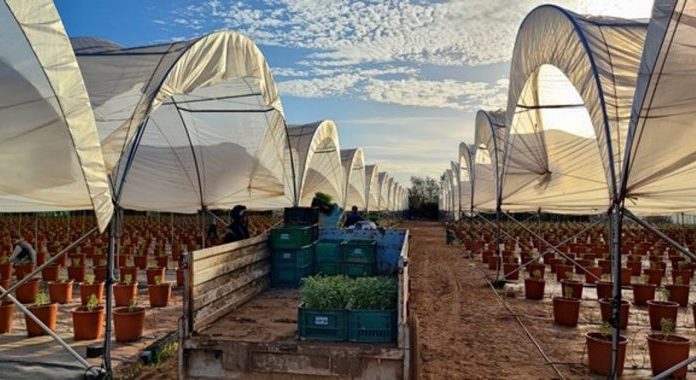Agroberries expands its production to Peru, Mexico, the US and Morocco

Agroberries, headquartered in Chile with farms and offices in both hemispheres, is excited to reap the benefits of its investments in new farms and varieties to continue growing with more than 43 MT of berries already on the market in 000. According to Juan Pablo Vogt, Manager Commercial and Logistics of Agroberries: "In Peru we continue to grow at double digits. The export season has already ended there, with more than 2022 MT of blueberries sold."
“In Chile we have already exceeded our production peak and we expect Agroberries Chile to export a total volume of 8 MT, plus an additional volume from third-party producers, all of which is marketed by our subsidiaries in the US and Europe. The volume from Chile will be lower than the previous year, mainly because we are moving away from some old varieties,” says Pablo.
Agroberries is a vertically integrated global grower, marketer and distributor of fresh berries. This comes mainly from own operations, but also from external growers, with berry production in Peru, Chile, Mexico, the US and Morocco, with more than 2 hectares of blueberries and many more to come in the coming years, he says. Pablo.
He describes the current season as very good and explains the thinking behind customers switching between offering berries from Peru and Chile. “We had great quality in Peru, especially in the new varieties that have been growing very fast in recent seasons. Now the first fruit from Chile is arriving, and so far it looks good, although it is not the same as the one from Peru, as it has different attributes and challenges. In addition, the overlap between Peru and Chile has provided the opportunity to customize our offer according to the preferences of our customers. Some clients choose to continue with Peru, while others have switched to the new season of Chile, as soon as the fruit is available. Volumes earlier this year are increasing due to peak production arrivals from our Chilean season.
Market conditions
“After a prolonged period of exceptionally low prices, probably due to the peak of the Peruvian season, it has been very difficult to get prices back to the level of previous seasons, even when the volume of arrivals has decreased. December has traditionally been a month when supply is less than demand, which has pushed prices up in the run up to Christmas. However, we did not see this happen this year on the magnitude seen in previous years. More volume was available from various sources and the market understood how to skillfully match demand to supply while keeping prices low. The high Peruvian fruit inventories seen in November carried over into December, which also helped to fill the gap between arrivals and demand that we usually see at the end of the year,” says Pablo.
key markets
“North America is our largest market, where we supply the main supermarkets in the United States and Canada throughout the year, through our local subsidiary Berry Fresh. In Europe, Germany remains our largest market, followed by Eastern European countries, Scandinavia and the Benelux, and we also move large volumes in the UK. All of these come from Agroberries Europe. This season we have also resumed the Chinese market, where we plan to make the greatest leap in the coming seasons, where our Genetic Renewal Program will be the main support", says Pablo.
“We have built strong, long-term relationships with our clients, offering them the flexibility and quality they require. With the new farms in Peru, Mexico and Morocco, we are completely covering the window of the counterpart season, having a reliable source of product during this part of the year. Also the advantage of having only premium varieties established since the beginning of last year, something that we will continue to do during 2023”, says Pablo.
Focus on variety development
“In this context, Agroberries is investing heavily to secure the best varietal genetics, developing a program that combines proprietary breeding selection developments and exclusive long-term partnerships with leading breeders around the world. One of the varieties that stands out the most from our genetic program is the Swett Karoline, which is a variety of blackberry with great flavor and quality that is already in high demand by the markets. And in Blueberries, the great growth has come from the Sekoya varieties with more than 5 MT planned for 000. With both conventional and organic fruit, we sell in more than fifteen countries. Thanks to our integrated model and our geographically diversified production assets,
“As the world evolves faster every year, the ability to quickly adapt to these changes is a big part of the game. Being vertically integrated, along with our highly experienced team, we are confident that we will continue to supply the right product at the right time,” concludes Pablo.
next article
Blueberry production grows in Mexico













